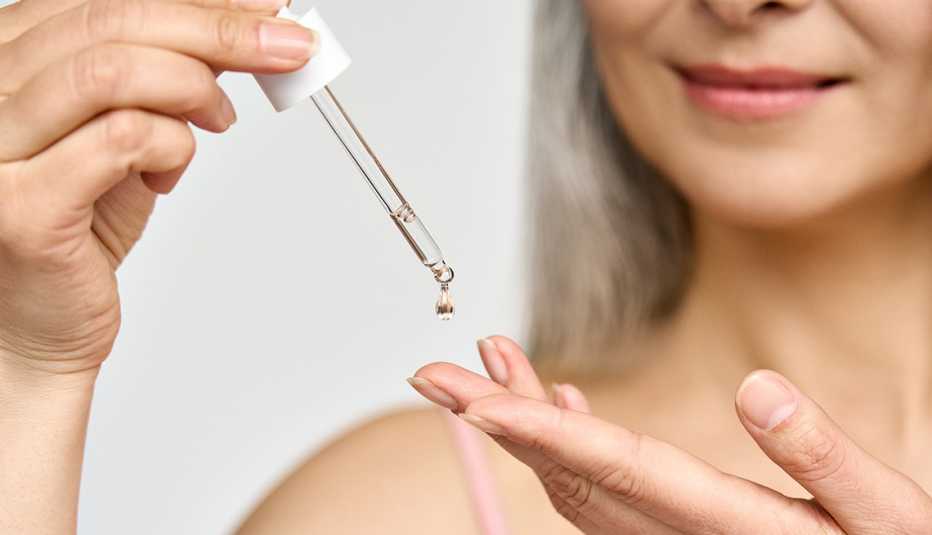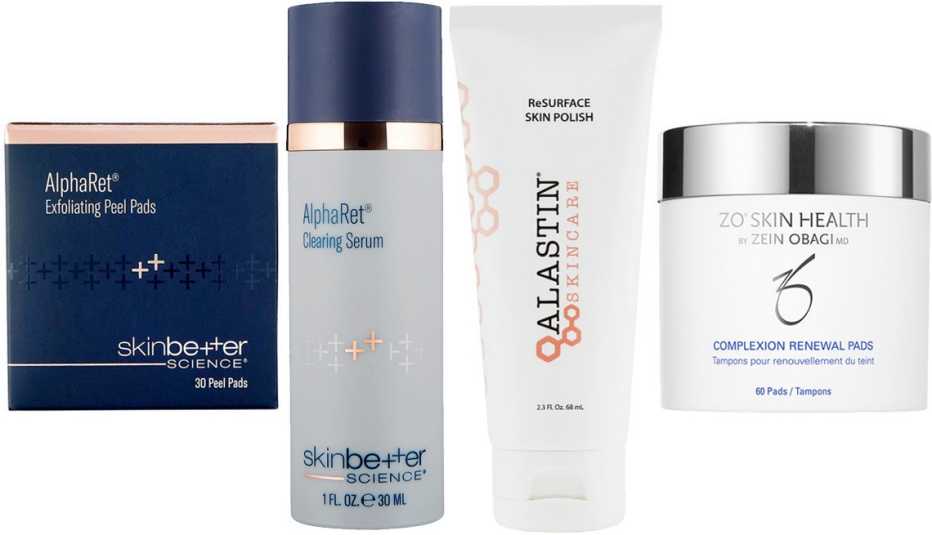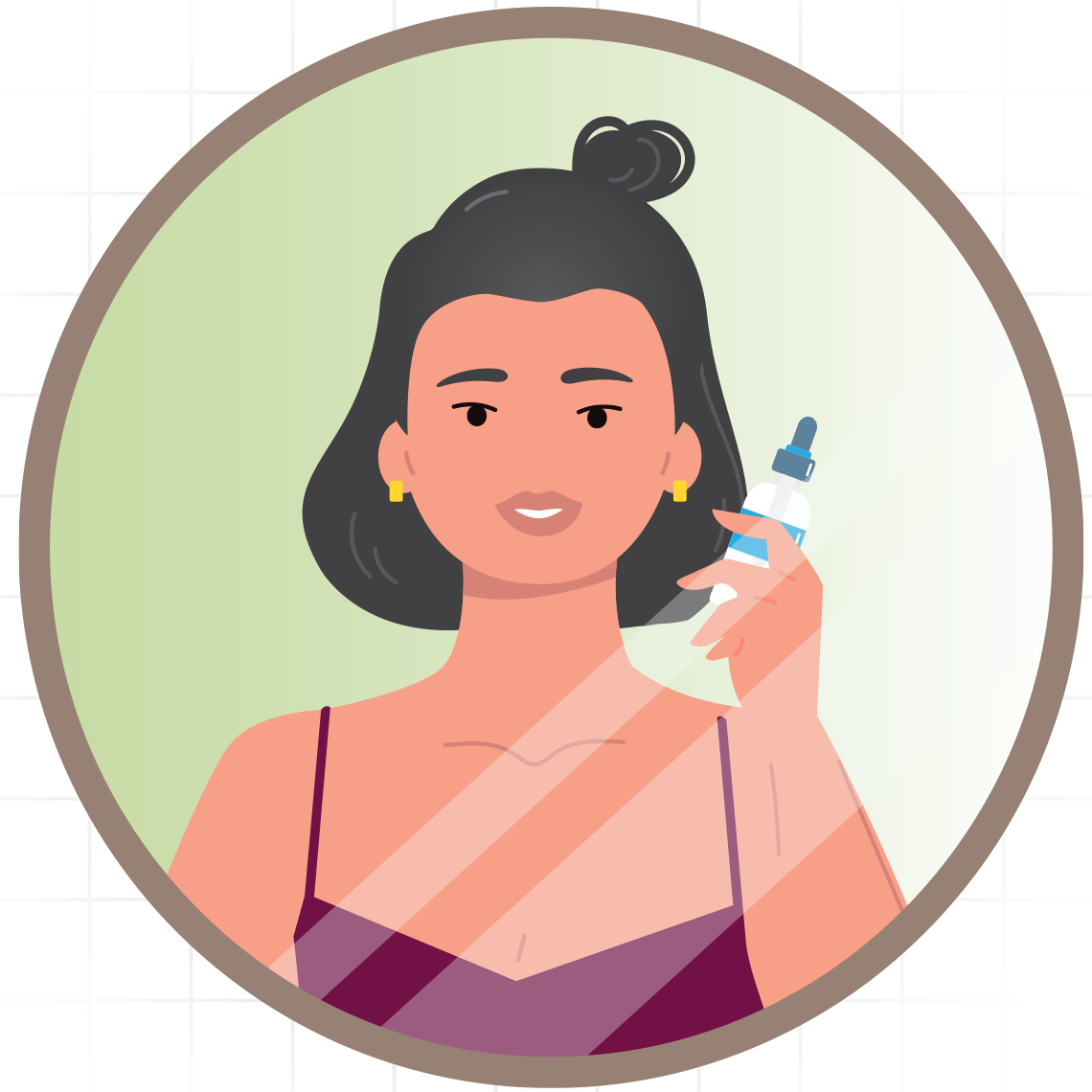AARP Hearing Center


When it comes to skin care in your 50s, restoring that luminous glow you once had in your 20s may seem like wishful thinking. Turns out, exfoliating regularly (and properly) helps shed dead skin cells, unclog pores, improve skin texture and allows skin care products to penetrate deeper. The result? A healthier, more youthful-looking complexion. Aesthetician Michelle Ghafari and dermatologist Moneé Thomas share best practices for exfoliating to achieve your most radiant, 50-plus skin yet.
1. Understand the difference between chemical and physical exfoliants.
Slathering on a grainy scrub may seem like the most satisfying way to slough off the gunk — but it’s not the only way. In fact, there are two forms of exfoliants: physical and chemical. A physical exfoliant manually removes dead skin cells from the surface layer of the skin, including scrubs that contain tiny particles, or more aggressive methods like dermaplaning, a professional treatment that involves the use of a scalpel to scrape off dead skin cells and facial hair.
A chemical exfoliant uses acids, such as alpha hydroxy acid (AHA) and beta hydroxy acid (BHA), as well as vitamin A (retinol) to break down dead skin cells on the skin’s surface, and is a much gentler option for aging skin. Think: serums and peels.
“I personally try to have my clients cycle through different forms of exfoliants, whether it is a combination of physical and chemical exfoliants or two different forms of chemical exfoliants, and we make a plan to alternate the days each product is used,” says Ghafari, a licensed aesthetician at Aesthetic Theory Medspa in Michigan. “This will usually [depend on] skin type and the condition we are treating.”
2. Start slowly.
Exfoliating can do wonders for the skin, but don’t get carried away. Mature skin can be dry, more prone to irritation and less resilient, so if you overdo it, your skin will let you know. “Overexfoliation can damage the skin barrier, leading to irritation and inflammation,” warns Thomas, a board-certified dermatologist and founder of Glow Dermatology in Houston.
“The key is to incorporate exfoliating into your regimen gradually and watch your skin’s response,” Ghafari adds.
A skin care professional can help you determine the right products and frequency for your needs. But generally, it’s wise to limit the use of physical exfoliants, such as scrubs and masks, to once a week to prevent irritation. And although chemical exfoliants are milder, using them once or twice a week is usually enough for mature skin to reap the benefits.


3. Know your skin type.
Dry, aging skin can benefit from an AHA, such as lactic acid, which contains hydrating properties, Ghafari says. And, of course, retinol is a must for mature skin, as it helps with cell turnover, thus improving skin texture. Oily or blemish-prone skin may benefit from a BHA, such as salicylic acid, which helps remove excess sebum. “Oftentimes, [these] types of ingredients can come in different forms of pads that you can use at home,” Ghafari says. “The AlphaRet Exfoliating Peel Pads from skinbetter science ($115, skinbetter.com) is a really good option for most skin types, and it has a combination of those ingredients in there.” Other safe options that Ghafari recommends for most skin types include Alastin Skincare’s ReSurface Skin Polish ($62, Alastin.com), Complexion Renewal Pads by Zo Skin Health ($59, zoskinhealth.com) and skinbetter’s AlphaRet Clearing Serum ($135, skinbetter.com).
Struggling with adult acne or sensitive skin? Ghafari suggests staying away from harsh scrubs and sticking to chemical exfoliants to keep excess oil and bacteria at bay.
“Constantly massaging the skin topically with something physical can cause a lot of irritation, and if you’re acne prone, that stimulation can cause breakouts to arise,” Ghafari explains.































































More From AARP
‘Skin Flooding’: Is TikTok’s Latest Viral Trend Right for Women Over 50?
Plus: Get a peek at Martha Stewart’s ‘unfiltered’ selfie
Skin-Care Tips From Black Women Dermatologists
Docs unveil their personal skin care stash
6 Products to Protect Your Lips
Pucker up for some much-needed SPF